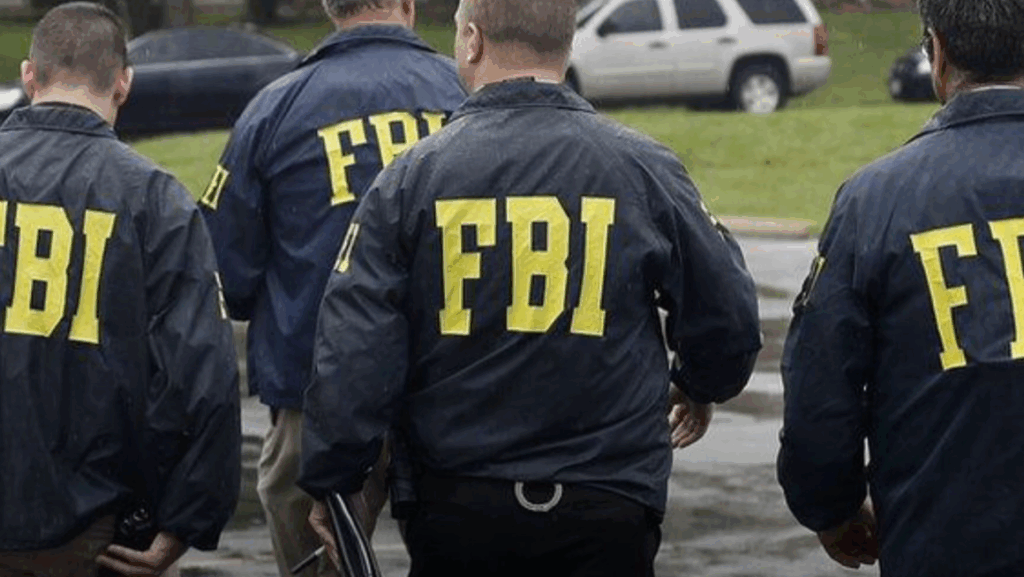What started as a routine request on a commercial flight almost brought down a three-year undercover FBI investigation. A simple question from a flight attendant — “May I see your ID?” — triggered a tense standoff at 30,000 feet that could have exposed one of the most sensitive operations in recent years.
A Seemingly Ordinary Flight Turns Tense
Passengers were settling into their seats, the cabin crew performing their usual checks, when a flight attendant stopped at Row 14. She politely asked a man traveling alone to present his identification once again.
At first, the passenger — who appeared calm but focused — refused, explaining:
“I’ve already shown my ID to TSA and again when I presented my boarding pass. Once seated, I am not required by law to show it again.”
This statement set off a chain of events that escalated quickly. The attendant, growing concerned, requested assistance from an air marshal and ground security.

“I’m in the Middle of a Three-Year Case”
As questioning intensified, the man’s composure began to crack. He leaned forward, lowered his voice, and warned the crew:
“I am in the middle of something. This is a three-year case. If you don’t leave me alone, everything could collapse. Please step back.”
For the flight attendant and the responding officer, this only raised more suspicion. No luggage. Traveling alone. Refusal to cooperate. The situation was beginning to look less like stubbornness and more like a potential threat.
The officer pressed:
- “Sir, are you carrying any weapons?”
- “Where is your luggage?”
- “Why can’t you simply comply and show ID?”
The passenger’s repeated refusal caused visible unease among other travelers, with some whispering that the man “seemed dangerous.”
Authority vs. Procedure: Who Really Has Jurisdiction?
The clash highlighted an often-overlooked issue in aviation security: Who has the final authority inside the cabin?
The air marshal reminded the man:
“Sir, you need to understand. She is part of the law on this aircraft. The captain has full jurisdiction, and she is an extension of that authority. You must comply.”
The passenger, however, stood firm:
“I respect your position. But legally, I have fulfilled my obligation. I cannot provide ID again without jeopardizing my assignment.”
This back-and-forth created a delicate standoff between federal authority and aviation protocol. The crew had the power to remove him from the flight, but the man’s cryptic insistence suggested something far bigger was at stake.
The Reveal: An FBI Agent Undercover
Eventually, the truth surfaced: the man was not a threat but an FBI agent traveling under deep cover, on the way to execute the final stage of a long-term investigation.
A former airline security consultant explained:
“This is the nightmare scenario. Airline staff are trained to treat all passengers equally, but undercover federal agents sometimes cannot disclose their identity without compromising years of work.”
The agent’s refusal was not arrogance but necessity. One wrong move — even something as simple as flashing an ID — could have blown his cover, jeopardized colleagues in the field, and collapsed a multi-year operation.

Lessons for the Aviation Industry
This incident sparked heated debate in both the aviation and law enforcement communities.
- For airline staff: Should there be special protocols when dealing with possible undercover federal agents?
- For federal agencies: Should undercover operatives be given discreet ways to bypass routine requests without alarming crew or passengers?
- For passengers: The case underscores how little we see of the hidden security machinery working around us during air travel.
Experts stress the need for better coordination between airlines and federal authorities to avoid scenarios where a simple misunderstanding could derail years of counterterrorism or criminal investigations.
Conclusion
A polite but insistent question — “May I see your ID?” — nearly derailed a classified FBI mission and threw a flight into chaos.
The confrontation revealed the razor-thin line between routine procedure and national security operations. In the high-stakes world of air travel and federal investigations, even the smallest detail can determine whether a mission succeeds or collapses.
Next time you board a flight, remember: not every passenger is simply going from point A to point B. Some may be carrying the weight of an entire operation — and the wrong question at the wrong time could change everything.


